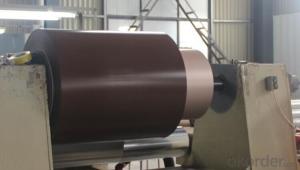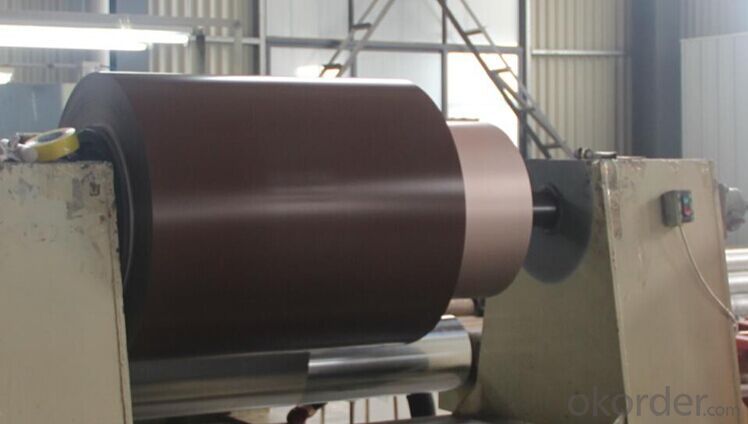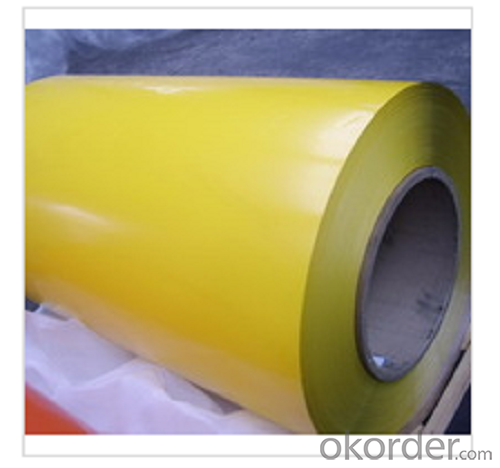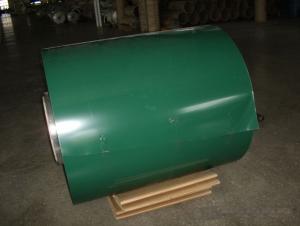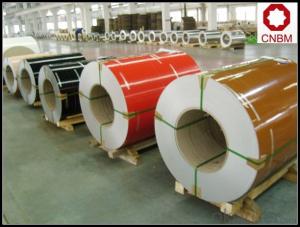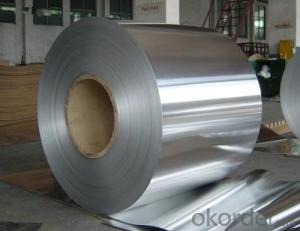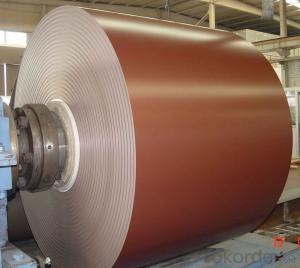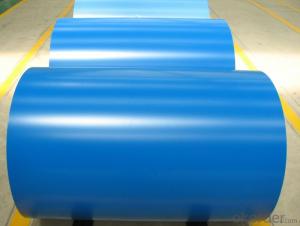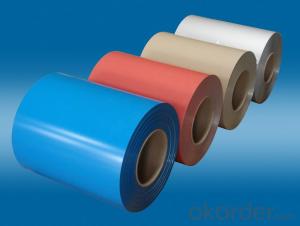Flat Rolled Aluminum Coil Toronto - Coating Aluminium Coil for Compesite Panel 1100 H18
- Loading Port:
- Qingdao
- Payment Terms:
- TT OR LC
- Min Order Qty:
- 200 m.t.
- Supply Capability:
- 200 m.t./month
OKorder Service Pledge
OKorder Financial Service
You Might Also Like
Specification
The Specification of Coated Aluminium
Pop-Up Foil Sheets are individual sheets of Aluminum Coil. Wrappers are so easy to use with all your foods because they pop up one-at-a-time and require no cutting or tearing! Use them for wrapping food to go, as portable place mats, wrapping sandwiches, protecting counters during meal preparation, when making snacks or to store food in the refrigerator.
coated emboss aluminum coil/metal roofing
| |
Aluminum Temper and Grade | Alloys: 1100, 1050, 1100, 3003, 3105, 8011 in a range of standard Temper: O-H112 |
Widths | Max up to 1600mm |
Thickness | 0.02-3.0mm |
Coating | PE or PVDF |
Color | AS per the RAL |
Weight | 1.5-4MT/Coil as per your request |
Packing Detail | Wooden pallet either eye to side or eye to sky
|
Application | Building material such as metal ceiling, roofing, wall cladding panel; Automobiles, etc. |
Rolled up tightly and evenly, smooth sides, uneven difference is less than 2mm, no obvious variation or loose inner core, with no concave outside profile. No more than 1 joint per 500m
The Main Features of Aluminium Coated Coil:
High quality with competive prices.
Wide product range of choice.
We are specific manufacture and control.
The Imagin
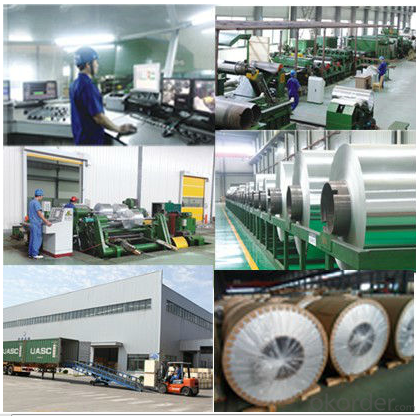
FAQ:
Q: Can you provide free samples?
A: Yes, free samples will be sent to you on freight at destination.
Q: Can I get your latest catalogue?
A: Yes, it will be sent to you in no time.
Q: What is the MOQ?
A: 5 tons
Q: What are your payment terms?
A: We accept L/C,T/T, West Union,etc.
- Q: What are the different types of aluminum alloys used for making coils?
- Coils are made from various aluminum alloys that possess unique properties and characteristics, rendering them suitable for different applications. Some commonly utilized aluminum alloys for coils include: 1. Aluminum 1100: Renowned for its exceptional corrosion resistance, high thermal conductivity, and good formability, this alloy is frequently employed in scenarios necessitating high electrical conductivity, like transformers or electrical coils. 2. Aluminum 3003: Appreciated for its moderate strength and excellent workability, this alloy boasts good corrosion resistance and is often used in applications where formability and resistance to atmospheric corrosion are essential, such as condenser coils or evaporator coils in HVAC systems. 3. Aluminum 5052: Known for its high strength, excellent corrosion resistance, and good weldability, this alloy finds extensive use in situations demanding strength and resistance to saltwater corrosion, such as marine or offshore applications. 4. Aluminum 6061: Recognized for its high strength, good corrosion resistance, and excellent machinability, this alloy is commonly employed in applications requiring high strength and good weldability, such as heat exchanger coils or automotive cooling coils. 5. Aluminum 7075: Famed for its remarkable strength and excellent fatigue resistance, this alloy is often utilized in scenarios necessitating extreme strength and resistance to stress, such as aircraft or aerospace components. These are only a few examples of the diverse aluminum alloys employed in coil production. The specific alloy chosen depends on the application's requirements, including strength, corrosion resistance, formability, or electrical conductivity.
- Q: What is the maximum temperature aluminum coils can withstand?
- The maximum temperature that aluminum coils can withstand typically ranges from 300 to 500 degrees Fahrenheit, depending on the specific alloy and application.
- Q: What are the potential health hazards linked to the use of aluminum coils?
- <p>There are concerns about the use of aluminum coils due to the possibility of aluminum leaching into food during cooking. Aluminum has been linked to various health issues, including cognitive decline and Alzheimer's disease, although the evidence is not conclusive. Additionally, aluminum exposure may lead to bone and neurological disorders. However, the health risks associated with aluminum coils are still a subject of debate among researchers. It's recommended to minimize exposure to aluminum by using alternative cooking methods or materials, such as stainless steel or cast iron.</p>
- Q: What are the potential challenges in recycling aluminum coils?
- Recycling aluminum coils presents several potential challenges that need to be addressed. To begin with, the removal of contaminants such as paint, oil, or other coatings from aluminum coils is a crucial step before the recycling process can commence. This task can be both time-consuming and costly as it requires thorough cleaning to ensure the quality of the recycled aluminum. Furthermore, the presence of mixed materials like steel or plastic in aluminum coils complicates the recycling process even further. These materials must be separated from the aluminum before it can be melted down and recycled. This separation necessitates specialized equipment and expertise, thereby increasing the cost and complexity of recycling aluminum coils. Transportation and logistics also pose a significant challenge in recycling aluminum coils. Their large and heavy nature makes it challenging and expensive to transport them to recycling facilities. Additionally, these facilities must possess suitable infrastructure to handle and process the coils efficiently. Moreover, the fluctuating market prices of aluminum contribute to the challenges in recycling aluminum coils. The value of recycled aluminum is influenced by global supply and demand, which can vary greatly over time. This unpredictability makes it difficult for recyclers to accurately predict the financial returns from recycling aluminum coils, potentially impacting the viability of the recycling process. Lastly, the overall awareness and participation in aluminum coil recycling present a challenge. Many industries and individuals may lack awareness regarding the benefits of recycling aluminum coils or may not have access to recycling facilities. Overcoming this challenge requires increasing education and improving accessibility to recycling programs, thereby promoting the sustainable recycling of aluminum coils.
- Q: What are the common surface treatments for aluminum coils in the construction industry?
- The common surface treatments for aluminum coils in the construction industry include anodizing, painting, and powder coating. Anodizing creates a protective oxide layer on the surface, enhancing corrosion resistance. Painting provides aesthetic appeal and additional protection against environmental elements. Powder coating offers a durable and decorative finish by applying a powder coating material electrostatically and then curing it in high heat.
- Q: What are the different sizes and dimensions of aluminum coils available?
- The sizes and dimensions of aluminum coils vary depending on the specific industry and application. Generally, aluminum coils are available in a range of widths, thicknesses, and lengths to accommodate various needs. In the construction industry, aluminum coils are commonly available in widths ranging from 24 inches to 60 inches. The thicknesses can range from 0.019 inches to 0.040 inches. The lengths of the coils can vary, but standard lengths are typically around 100 feet or more. For industrial and manufacturing purposes, the sizes and dimensions of aluminum coils can be even more diverse. Coils with widths exceeding 60 inches are available for large-scale applications. The thicknesses can range from 0.006 inches for thin, lightweight coils to 0.250 inches for heavy-duty applications. Additionally, the dimensions of aluminum coils can be customized to meet specific requirements. Some manufacturers offer coil slitting services to cut coils into narrower widths, while others can provide custom lengths or thicknesses based on the customer's specifications. It is important to note that the availability of different sizes and dimensions may vary among suppliers. Therefore, it is advisable to consult with a reputable aluminum coil supplier or manufacturer to determine the specific sizes and dimensions they offer.
- Q: Are there any special considerations for handling and storing aluminum coil scraps?
- Yes, there are special considerations for handling and storing aluminum coil scraps. It is important to segregate aluminum scraps from other metals to prevent contamination. They should be stored in a dry and well-ventilated area to avoid moisture absorption and potential corrosion. Additionally, proper labeling and organization are crucial to ensure easy identification and retrieval of the scraps when needed.
- Q: Some manufactures (Kia, Hundai) use Iron blockswhileOther manufactures (Nissan, Chevy, ect.) use Aluminum blocks*****Is the point of using Iron blocks to increase long-term durability or temperature endurance??ORIs the use of Iron blocks simply an older, simpler technology (as compared to using Aluminum), the manufacture of which costs less money??And you would think that Aluminum weight savings would transer to better MPG, but the Kia gets very comparable mileage anyway.Thank you
- The latter points were right. Iron blocks are heavier, although much cheaper to make. Aluminum ones are significantly lighter and handle heat better, but it is a bit more expensive to make them.
- Q: Can aluminum coils be used in the production of aluminum foil?
- Indeed, the utilization of aluminum coils is viable in the manufacturing of aluminum foil. Normally, aluminum coils are generated through the process of rolling aluminum ingots between substantial rollers, resulting in the formation of slender and level sheets. Subsequently, these coils can be subjected to additional procedures to yield aluminum foil. The coils are unwound and conveyed through a sequence of rolling mills that gradually diminish the thickness of the metal until the desired gauge for aluminum foil is attained. Following this, the foil is sliced into sheets or wound into rolls for the purpose of packaging and distribution. Aluminum coils offer a cost-efficient and effective means to generate substantial quantities of aluminum foil.
Send your message to us
Flat Rolled Aluminum Coil Toronto - Coating Aluminium Coil for Compesite Panel 1100 H18
- Loading Port:
- Qingdao
- Payment Terms:
- TT OR LC
- Min Order Qty:
- 200 m.t.
- Supply Capability:
- 200 m.t./month
OKorder Service Pledge
OKorder Financial Service
Similar products
Hot products
Hot Searches
Related keywords
